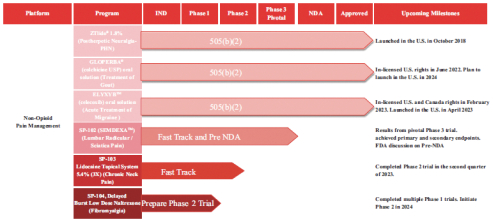The Certificate of Incorporation also provides that if the DGCL is amended to permit further elimination or limitation of the personal liability of directors, then the liability of our directors will be eliminated or limited to the fullest extent permitted by the DGCL, as so amended.
The Bylaws provide that we shall indemnify any person who is or was a director or officer of the Company or who is or was serving at our request as a director, officer or trustee of another corporation, limited liability company, partnership, joint venture, employee benefit plan, trust, nonprofit entity or other enterprise (a “Covered Person”) and who is or was a party to, is threatened to be made a party to, or is otherwise involved (including as a witness) in any threatened, pending or completed action, suit or proceeding, whether civil, criminal, administrative, or investigative based on such person’s actions in his or her official capacity as a director or officer of the Company or as a director, officer or trustee of another corporation, limited liability company, partnership, joint venture, employee benefit plan, trust, nonprofit entity or other enterprise (to the extent serving in such position at our request), in each case against all liability and loss suffered (including, without limitation, any judgments, fines, excise taxes or penalties arising under the Employee Retirement Income Security Act of 1974 and amounts paid in settlement consented to in writing by us) and expenses (including attorneys’ fees), actually and reasonably incurred by such person in connection therewith, subject to certain conditions. In addition, the Bylaws provide that we may, to the fullest extent permitted by law, (i) advance costs, fees or expenses (including attorneys’ fees) incurred by a Covered Person defending or participating in any proceeding in advance of the final disposition of such proceeding, subject to certain exceptions, and (ii) purchase and maintain insurance, at our expense, to protect us and any person who is or was a director, officer, employee or agent of the Company or is or was a director, officer, employee or agent of the Company serving at our request as a director, officer, employee or agent of another corporation, limited liability company, partnership, joint venture, trust, employee benefit plan or other enterprise against any liability, expense or loss, whether or not we would have the power or obligation to indemnify such person against such liability, expense or loss under the DGCL or the provisions of the Bylaws.
We have entered into indemnification agreements with each of our directors, executive officers and certain other employees as determined by our Board. These agreements, among other things, require us to indemnify our directors and executive officers against liabilities that may arise by reason of their status or service. These indemnification agreements also require us to advance all expenses actually and reasonably incurred by the directors and executive officers in connection with any proceeding. Our Board believes that these agreements are necessary to attract and retain qualified individuals to serve as directors and executive officers.
The above description of the indemnification provisions of the Certificate of Incorporation, the Bylaws and the indemnification agreements is not complete and is qualified in its entirety by reference to these documents, each of which is filed as an exhibit to the registration statement of which this prospectus is a part.
Certain of our non-employee directors may, through their relationships with their employers, be insured or indemnified against certain liabilities incurred in their capacity as members of our Board.
The limitation of liability and indemnification provisions in the Certificate of Incorporation and the Bylaws may discourage stockholders from bringing a lawsuit against our directors and officers for breach of their fiduciary duty. They may also reduce the likelihood of derivative litigation against our directors and officers, even though an action, if successful, might benefit us and our stockholders. In addition, a stockholder’s investment may be adversely affected to the extent we pay the costs of settlement and damage awards against directors and officers pursuant to these indemnification provisions. Insofar as indemnification for liabilities arising under the Securities Act may be permitted to directors or executive officers, we have been informed that in the opinion of the SEC, such indemnification is against public policy and is therefore unenforceable.
Conflicts of Interest
Delaware law permits corporations to adopt provisions renouncing any interest or expectancy in certain opportunities that are presented to the corporation or its officers, directors or stockholders. The Certificate of
17
